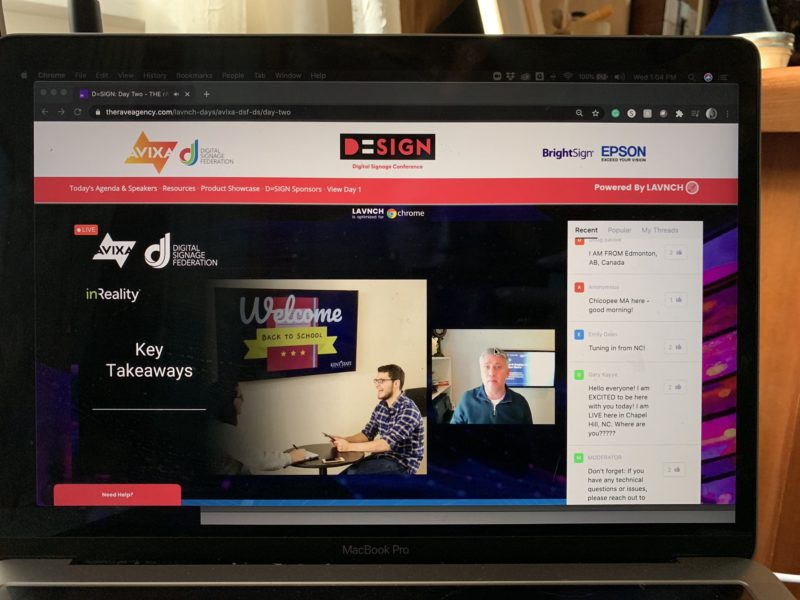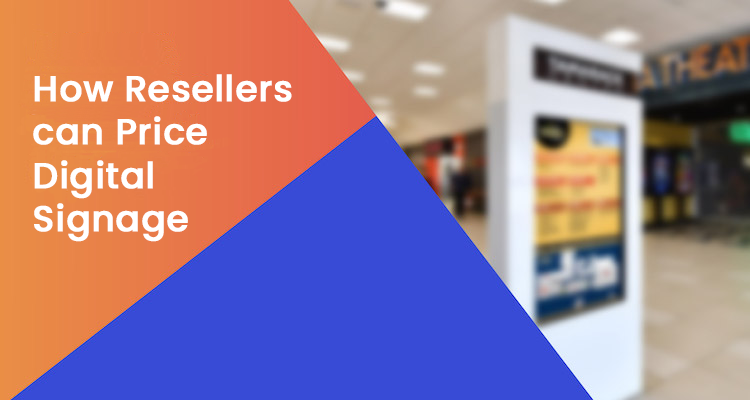A Breakdown of White Label Digital Signage
THIS IS A PROMOTED POST FROM MVIX
 By Lillyan Wamaitha
By Lillyan Wamaitha
Marketing Manager, Mvix
As an entrepreneur who wants to solve a problem, your first instinct is to create your own solution. However, in some cases, developing a customized solution from scratch to meet your business needs can set you up for failure. This is because building your own solution may cause you to:
- Reinvent the wheel or make mistakes that others have made and mastered;
- Consume too much of your time troubleshooting and learning outside your core competency;
- Waste money developing a solution that already exists in a refined format;
- Inadequate resources and expertise for that specific application.
You can avoid these pitfalls by opting for a white-label digital signage solution. This is a fully-supported product that’s developed by one company and sold by another.
You purchase a white label digital signage player without the developer’s branding. This allows you to customize the product with your own brand, allowing your customers to associate the product with you. Meanwhile, the manufacturer can focus on improving and producing the product cost-effectively without worrying about marketing.
Pros for integrators selling white label digital signage
- Build your own brand.
By rebranding a vendor’s product as your own, you are reinforcing your brand and reputation. You are also building a strong relationship with your customers. - Set your own margins.
You are free to create your own pricing model that you will use to resell your vendor’s offering. - Take advantage of a refined product.
This product has undergone tests and revisions and other fine-tuning processes. You will be using a polished product with your name attached to it. - Easier market entry.
White labeling is an excellent way of establishing channels in new markets. Without this partnership, it can be cost-prohibitive. - Faster innovation.
You can benefit from improvements by your production partner; since they will be solely focused on innovation and improving the product.
Cons for integrators selling white label digital signage
- Inconsistent quality.
One of the major concerns when it comes to white-labeling is consistency in quality. Vendors may not adhere to quality standards, affecting product consistency. - Less control.
You have little control when you’re using a white-label strategy. To make the partnership work, parties must come to an agreement. - Potential liability.
You may have to assume liability for any issues that customers experience. The blame may not fall on the vendor since you’ve branded the product as your own. - Losing customers.
If quality of service changes, your loyal customers may opt for another brand. Quality control is an integral part of a white-labeling strategy.
What to look for in a white label digital signage partner
- Have a similar vision and goals.
You should look for a white-label partner whose vision and goals align with those of your business. This is a strategic business partner, and you have to make sure they are a good fit. - Provide a solid product that is perfect for your business.
Look for a partner that has a solid solution for you. Do they continuously improve the product? Do they listen to your concerns and suggestions? - Have a solid reputation and track record.
Are they transparent and honest? Do they have a solid reputation? Are they considered an expert in the industry? Do your research before you get into a partnership. - Have experience being a white label partner.
If you are to enter into a partnership with them, you have to ensure that they are knowledgeable and experienced in being a white-label vendor. This is because it requires strategic expertise. - Offer stellar service and support.
Do they have a well-organized method of onboarding and training? Do they have adequate resources to aid your learning and growth? How fast do they respond in case you have a problem? These are some core factors you should take into consideration. - Clear contract terms.
Do they have an elaborate contract, and are their terms and conditions clear? They should be transparent and open and give you room to ask questions before signing on the dotted line. - Allow you to test drive the product.
How do you know if the product is suitable for your business if you don’t try it first? You should be able to test the product and learn how their model works and if it can work for your business.
How would digital signage companies benefit from a white label system?
Marketing your brand takes a lot of work, time and money. When you white-label your product, you never have to worry about this. If you are a start-up and are not well known in the market, you can get incredible clients that you would not have been able to find on your own. With white-labeling, you don’t have to be a jack of all trades. You can purely focus on what you love.





